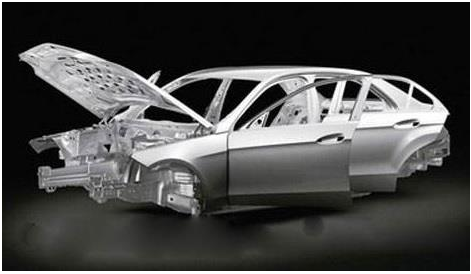Introduction:
When it comes to choosing cooking utensils or even automobile parts, the choice between cast aluminum and cast iron often presents itself. Both materials have their own unique properties and advantages, making the decision a difficult one. In this article, we will conduct a comparative analysis of cast aluminum and cast iron, exploring their characteristics, benefits, and drawbacks, in order to help readers make an informed decision.
Cast Aluminum:
Cast aluminum is a lightweight material that offers excellent heat conductivity. It is produced by pouring molten aluminum into a mold, allowing it to solidify and take the desired shape. One of the key advantages of cast aluminum is its even heat distribution, which ensures that food is cooked uniformly. Moreover, cast aluminum has a high heat retention capacity, allowing it to stay hot for longer periods of time.
Another notable advantage of cast aluminum is its corrosion resistance. When exposed to moisture, aluminum forms a protective oxide layer that prevents rusting. This makes cast aluminum utensils highly durable and long-lasting. Additionally, cast aluminum is relatively easy to clean due to its non-stick properties, which can save time and effort in the kitchen.
However, cast aluminum does have some drawbacks. Firstly, it is a softer material compared to cast iron, which means it is more prone to scratching and denting. This can be a concern for those who prefer a more robust and resilient cooking surface. Furthermore, cast aluminum may warp under extreme temperatures, making it unsuitable for high-heat cooking methods such as searing or broiling.
Cast Iron:
Cast iron, on the other hand, is a heavy and durable material that has been used for centuries. It is made by melting iron and pouring it into a mold, resulting in a solid and sturdy utensil. One of the main advantages of cast iron is its superior heat retention capabilities. Once heated, it holds on to that heat for a long time, making it ideal for slow-cooking or simmering dishes.
Additionally, cast iron provides excellent heat distribution, ensuring that food is cooked evenly. This makes it a popular choice for frying and sautéing. Furthermore, cast iron develops a natural non-stick surface over time, known as seasoning, which adds flavor to the food and reduces the need for excessive oil or fat.
Moreover, cast iron is extremely durable and can withstand high temperatures without warping or melting. It is also scratch and dent resistant, making it suitable for heavy-duty cooking. However, the weight of cast iron can be a drawback for some individuals, as it may be difficult to handle and maneuver. It also requires special care, as it can rust if not properly seasoned and dried after use.
Conclusion:
In conclusion, both cast aluminum and cast iron have their own distinct advantages and drawbacks. Cast aluminum offers lightweight construction, even heat distribution, and corrosion resistance, but it may scratch easily and warp under high temperatures. On the other hand, cast iron provides superior heat retention, even heat distribution, and durability, but it is heavy and requires special care to prevent rusting.
Ultimately, the choice between cast aluminum and cast iron depends on personal preferences, cooking habits, and the specific purpose of the utensil. Those who prioritize lightweight and easy-to-clean options may lean towards cast aluminum, while individuals seeking durability and heat retention may prefer cast iron. Consider your requirements and weigh the pros and cons to make an informed decision that suits your needs.
-

- Mangensium alloy die-casting Thixomolding metal parts
-

- Custom-made thixomolding parts UAV components with CNC machining &surface treatment
-

- Factory Custom China Bmx Cycles Road Sport Kids Bicycle 12 16 18 20 Inches Cycle Mtb For Kids 6-10 Year
-

- Die cast magnesium parts laptop housing cover D
-

- OEM die-casted parts& components
-

- Magnesium Aluminium alloy die casting parts Chain cover for automotive

 0086-750-5616188
0086-750-5616188 +86 13392089688
+86 13392089688 sales@zhongmei-tech.com
sales@zhongmei-tech.com








